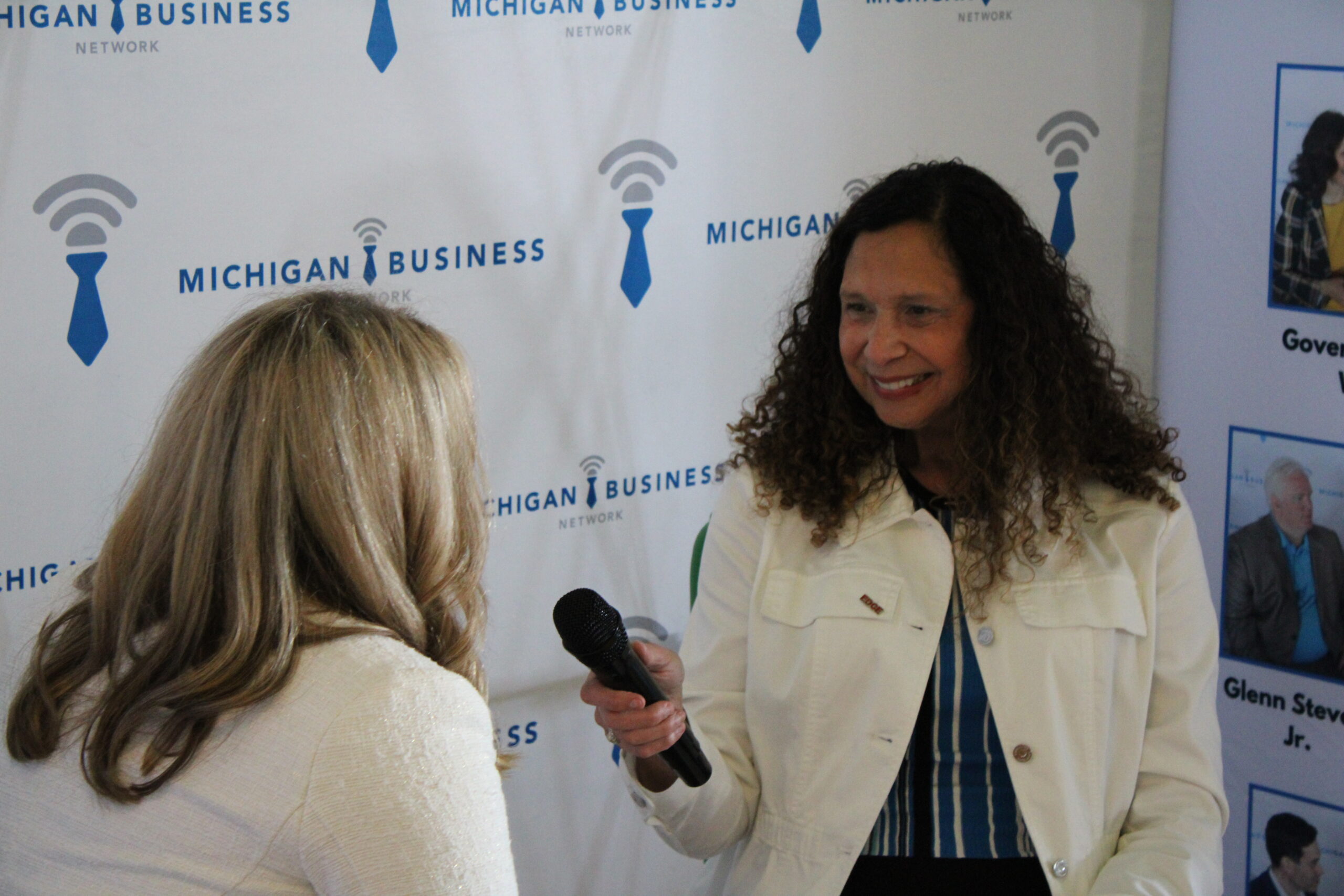In their conversation Jeffrey had several things he wanted to find out from Julie:
Julie Lowenthal, Program and Advocacy Specialist, AgeWays Nonprofit Senior Services (Area Agency on Aging), Southfield, MI.
Questions
1. Can you help listeners understand the scope of unpaid caregiving in Michigan and what this means for our workforce?
2. How are rising costs and inflation specifically impacting family caregivers across Michigan?
3. We’re seeing healthcare worker shortages forcing many people to reduce work hours or leave their jobs entirely. What impact is this having on Michigan families?
4. What specific programs does AgeWays offer to help families manage these pressures?
5. How can employers better support their employees who are juggling work and caregiving responsibilities?
6. As we head into the holiday season, what should families be discussing about caregiving plans?
7. What solutions do you see on the horizon to prevent caregiving from becoming an economic hardship for more Michigan families?
Talking Points:
The Area Agency on Aging 1-B is now AgeWays Nonprofit Senior Services!
New Name. Same great people. Same great programs.
Their new name reflects what they do best: Helping older adults age in the ways they choose. Please note my updated email address and add it to your address book. For more information on our new name, phone number, it is 800-895-852-7795 visit AgeWays.org/NewName.
● The Scale of Caregiving in Michigan ○ Magnitude: Michigan has over 1.3 million unpaid caregivers, many balancing caregiving responsibilities with paid employment.
○ Economic Value: These caregivers provide an estimated $15 billion worth of unpaid care annually.
● Economic Pressures on Caregivers ○ Lost Income: Many caregivers reduce work hours or leave jobs entirely, resulting in lost wages and retirement savings.
○ Out-of-Pocket Costs: Caregivers often spend 20-25% of their income on care-related expenses, including medical supplies, home modifications, and transportation.
○ Impact on Employers: Caregiver stress and absenteeism cost U.S. businesses $50 billion annually in lost productivity.
● The Caregiving Workforce Crisis ○ Shortages in Paid Care: Michigan faces a critical shortage of direct care workers, with low wages and high turnover exacerbating the issue.
○ Economic Ripple Effects: Without enough paid caregivers, families bear more responsibility, further straining household budgets and economic stability.
● Broader Economic Impacts ○ Workforce Participation: Caregiving responsibilities often force women, who make up the majority of caregivers, to scale back their careers, contributing to gender wage gaps.
○ Healthcare Costs: Lack of adequate caregiving can lead to increased hospitalizations and long-term care admissions, driving up healthcare costs for individuals and the state.
● Policy Solutions and Advocacy
○ Paid Family Leave: Expanding paid leave policies could help caregivers balance work and care, reducing economic strain.
○ Direct Care Worker Wages: Increasing wages and benefits for paid caregivers would strengthen the workforce and support families.
○ Tax Credits: Enhancing tax credits for family caregivers could offset some out-of-pocket costs.
○ Community Support Programs: Investing in respite care, transportation services, and caregiver training programs could alleviate pressures.
● A Call to Action for Businesses
○ Employer Support: Businesses can adopt flexible work policies, caregiving benefits, and employee assistance programs to retain and support caregiver employees.
○ Public-Private Partnerships: Collaborating with government and nonprofit organizations can create innovative solutions to caregiving challenges.
● Why Caregiving is an Economic Priority
○ Aging Population: With Michigan’s population rapidly aging, the economic impact of caregiving will only grow.
○ Workforce Resilience: Addressing caregiving pressures strengthens Michigan’s overall workforce, benefiting the state’s economy.
 Jeffrey Mosher welcomes Julie Lowenthal, Program and Advocacy Specialist, AgeWays Nonprofit Senior Services (Area Agency on Aging), Southfield, MI.
Jeffrey Mosher welcomes Julie Lowenthal, Program and Advocacy Specialist, AgeWays Nonprofit Senior Services (Area Agency on Aging), Southfield, MI.









